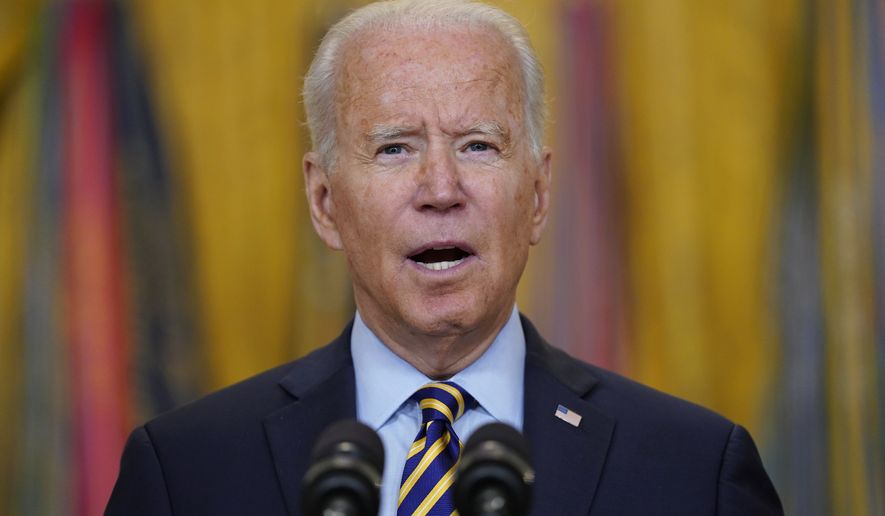President Biden will direct federal agencies on Friday to rein in the high cost of hearing aids and crack down on hidden fees from airlines and internet providers as part of a package of what administration officials say are pro-consumer moves.
The White House said just four companies control 84% of the hearing-aid market and a pair, on average, costs $5,000.
Mr. Biden wants to make hearing aids available over the counter, saying it will spur competition and decrease prices.
“A major driver of the expense is that consumers must get them from a doctor or a specialist, even though experts agree that medical evaluation is not necessary,” a White House fact sheet said. “Rather, this requirement serves only as red tape and a barrier to more companies selling hearing aids.”
The administration said 48 million Americans suffer from hearing loss but only about 14% use hearing aids.
Congress in 2017 authorized over-the-counter sales but the Trump administration failed to issue the regulatory rules needed to carry it out, according to the White House. Mr. Biden will order his administration to issue the rules within 120 days.
The move is part of a sprawling executive order Mr. Biden is signing to spur competition in the economy. It includes 72 initiatives affecting more than a dozen agencies. Moves to rein in Big Tech and limit “non-compete” orders are likely to generate the big headlines, but there is a laundry list of provisions for everyday consumers.
The administration argues the health, agriculture, transportation and communication sectors have been consolidated into the hands of a few powerful players, raising costs for everyone.
Beyond hearing aids, the order says airlines should have to disclose baggage, flight-change and cancellation fees to consumers upfront. It also directs the Department of Transportation to require the refund of fees when airlines do not deliver baggage on time or fail to deliver other promised services.
The administration said the top 10 airlines collected over $35 billion in ancillary fees in 2018, up from just over $1 billion in 2007.
“These fees are often raised in lockstep, demonstrating a lack of meaningful competitive pressure, and are often hidden from consumers at the point of purchase,” the White House said.
The order also proposes a “Broadband Nutrition Label” to make it easier to compare prices of internet providers, since prices are often higher than advertised. And it would target excessive early-termination fees, which can reach $200 when consumers decide to switch providers.
Meat shoppers, meanwhile, would get a better sense of whether products labeled “Product of USA” were in fact raised in America.
Most grass-fed beef is raised abroad and only processed into cuts in the U.S., making it hard for consumers to know “where their food comes from and to choose to support American farmers and ranchers,” the White House said.
Bank mergers are also targeted in the order. The administration said branch closures are slashing local options for consumers but, even when users do have choices, it’s hard for them to transfer to a new bank.
The order prods the Consumer Financial Protection Bureau (CFPB) to issue rules allowing customers to download their banking data and take it with them to a new bank.
• Tom Howell Jr. can be reached at thowell@washingtontimes.com.




Please read our comment policy before commenting.